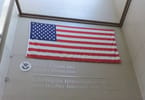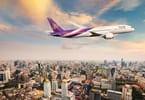BANGKOK, Thailand (eTN) – In times of crisis, what could look as an asset to be backed by a government is turning out to be a burden for Thai Airways International as the airline is unable to adapt rapidly to the situation in turbulent times.
An article in the Bangkok Post generated curiosity in air transport circles in Thailand. In a long interview, Bangkok Airways CEO Dr Prasert Prasarttong-Osoth voiced his concern on the future of Thailand national carrier. The founder of the regional airline Bangkok Airways lashed out the national airline, predicting it could go bust by next year if no reform is done. To aviation veteran journalist Boonsong Kositchotethana, Prasert highlighted that mounting financial troubles, bureaucracy linked to a lack of leadership and allegations of political meddling and corruption were responsible for the dire stand of the airline.
Corruption and political meddling are nothing new in Thailand as they are present in practically any Thai-run business, including most probably Bangkok Airways. But for Bangkok Post interviewer Boonsong Kositchotethana, the big difference between Bangkok airways and Thai Airways resides in the fact that the national carrier is still funded by public money, which makes it more accountable to its acts.
Thai Airways currently experiences a sharp decline of its traffic, exacerbated by political uncertainties in the Kingdom. But external factors are not only the cause for it. In harsh times, the collusion of alleged corruption, nepotism and board of directors’ incompetence are also taking their toll on Thai Airways’ destiny. And dissent voices start to be heard within the airline with some executives thinking that Thai Airways is heading into the wall.
For decades, the government , which owns 51 percent of all shares through the Ministry of Finance (70 percent of all shares are into public hands when including other shareholders), has considered Thai Airways as its own toy of prestige. However, any decision is suspended to the will of the board of director, most of them political appointees.
“They are barely professionals of air transport and if our CEO opposes them, he will be sacked immediately. Our CEO benefits also from support at the highest level,” explained a Thai Airways executive, who spoke under condition of anonymity.
Absence of competence has translated over the last years into strange decisions such as transferring domestic flights to most provincial cities from Suvarnabhumi to Don Muang airport, cutting customers from the possibility to connect to TG international network. Another previous executive, asked by the time about the relevance and the professionalism of such a decision by the board of directors, replied by a prudent “no comment.”
The airline continues to fly unprofitable routes with an aging product. Little has been done so far to look thoroughly at the network. “A routes’ review with a downsizing of the airline such as what happened a few years ago at Garuda or Malaysia Airlines is just inconceivable for Thai Airways,” admitted the anonymous executive.
As a matter of fact, Thai Airways is only adjusting frequencies to demand this winter, Thailand’s high season with capacities up by just 2 percent.
TG has also been unable to use properly its own low cost subsidiary, Nok Air (39 percent of all shares), as a complement to its own activities. Both airlines remain today at odds on a common development’s strategy with Nok Air trying to sort out financial problems. Over staffing (20,000 employees for the time), bad human resources as many PNC or headquarters employees are getting a job rather for their political connections than their real skills are just some of the problems the airline is unable to fix.
Same can be said about the inability for TG to invest in time into a new fleet a few years ago. Decisions about the fleet evolution have been many times delayed over the past years due to government changes. Thai Airways average fleet age reaches over 11 years compared to 6.6 years for Singapore Airlines. The presence of 17 Airbus A300 and 18 Boeing 747-400 weight heavily on the airline’s fuel bill. This year, fuel bill should reach up to US$200 million, 35 percent of airline’s total costs.
Some TG executives complaint also that the slow reaction of TG to lower its fuel surcharge as oil goes down makes the airline very uncompetitive in many markets. “On long-haul traffic which represents the bulk of our business, fuel surcharge has decreased by 5 percent to 10 percent by early October as oil prices already plunges by 40 percent on average. This is too little. Keeping fuel surcharge so high for so long just to make more money is the wrong strategy as our competitors lowered sharply their surcharges. Many of our potential passengers have already gone to the competition because of our slow reaction,” added the questioned TG executive.
Thai Airways this week announced a further reduction, this time by 30 percent on most intercontinental routes but it might be already to late to capture back some of the market.
According to Krittaphon Chantalitanon, Thai Airways regional director for Thailand, Indochina and Myanmar, a recently received Airbus A340-600 as well as the delivery of eight Airbus A330 next year will give some relieve to the airline. Cost controls have also been enforced on luggage check-in allowances, in-flight food and water carried on board in a way to reduce weight.
TG is expected to see its annual loss reaching over 9.5 billion baht this year (US$ 270 million). In the interview to the Bangkok Post, Dr. Prasert compared Thai to a patient with terminal-stage cancer, with little prospect for recovery in the near term. He sees the rescue of the national carrier through a full and proper privatization to avoid the collapse.
“It will never happen as to many political interests are into the balance,” said the Thai Airways executive bitterly.
How does the future look? The Thai government will continue to bail out the airline for a question of prestige as it would be a major lose of face for Thailand’s government to get its national carrier getting bust or private. But this prestige will become increasingly expensive over time and translates into a stagnating airline with no defined strategy. The only meager consolation in Dr. Prasert’s interview to the Bangkok Post: Thai Airways is not the only one to be lashed out by him. He judges the Airports Authority of Thailand (AOT) as corrupted and inefficient as the national carrier.






















